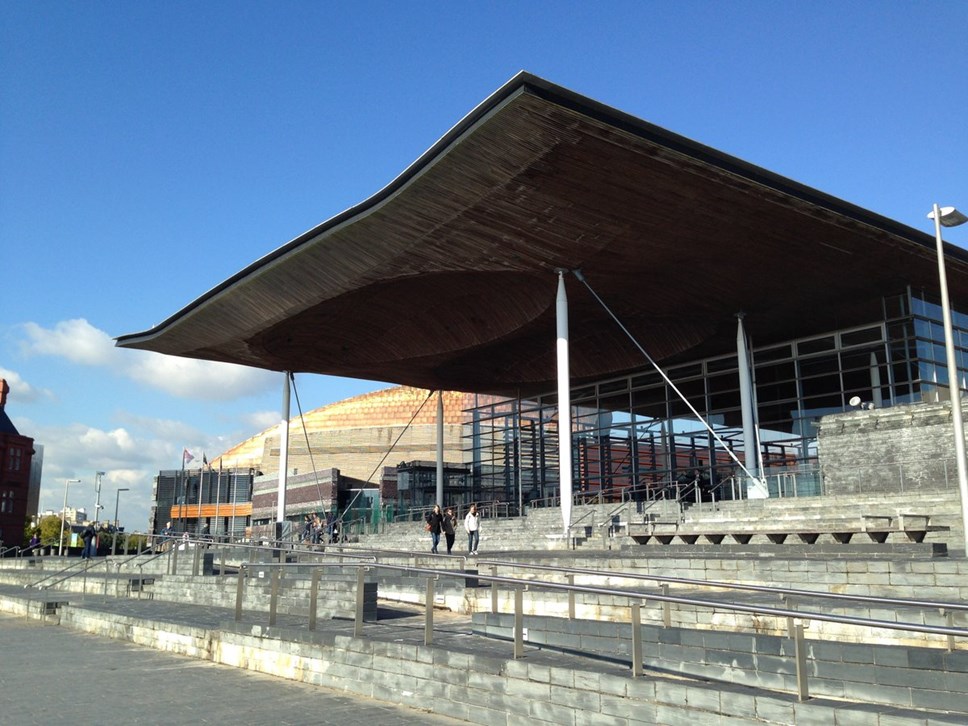
Bill to revolutionise local government and democracy passed in the Senedd.
Y Senedd yn pasio bil i chwyldroi democratiaeth a llywodraeth leol
A bill to reform local government elections, democracy, performance and governance has been passed in the Senedd.
Exactly a year since it was introduced, the Local Government and Elections (Wales) Bill will provide increased opportunities for public participation and transparency in local government. The Bill will reduce the voting age in local government elections to 16 and 17 year-olds and extend the franchise to foreign citizens legally resident in Wales, allowing them to have a say in how their communities are run. This reflects the rights of 16 to 17 year olds and qualifying foreign citizens to register and vote in the Senedd elections next year.
Greater diversity amongst elected members in principal councils will also be supported by providing for job-sharing by office holders, more flexible remote working and updating family absence provisions.
Speaking after the Bill was passed, Minister for Housing and Local Government, Julie James said:
“This Bill will enable a local democracy which reflects our diversity as a nation, provide local government with new ways to support and serve their communities and reinvigorate local democracy in Wales.”
The Bill enables greater accessibility and participation in local government by making it easier to register to vote and enfranchising more people to vote. It enables more people to stand for election from a range of different backgrounds so that councils can fully reflect the communities they serve.
Increasing accessibility has been a prominent feature of the Bill, not only making it easier for people to be included on the electoral register but also easier for people to stand for election.
Councils will now be required to consult and publish a public participation strategy with the aim of making it easier for local people to understand how local government functions; how it makes decisions; how local people can follow proceedings and how they can input their views and have them taken into account. To help facilitate greater participation, the bill seeks to promote more effective use of petitions within local government, introducing petitions schemes already in place with other public bodies including the Senedd.
The Welsh Government believes people should be able to watch council meetings at any time. The Bill will require principal councils to live broadcast meetings of their full council that are open to the public electronically and to make the broadcast available electronically for a reasonable period after the meeting. It will also enable more meetings to be broadcast in this way in the future.
People attending community council meetings will now have greater opportunity to make representations during meetings about any business. For community and town councils the Bill will also allow for remote attendance at meetings allowing those with caring responsibilities and in employment to stand for election to this important level of local government.
The Minister for Housing and Local Government said:
“The ways in which we live and work in Wales are constantly changing and our public service organisations are working hard to keep pace with that change. I believe we now have a Bill which will deliver effective reform and has been designed with local government. Anything we do to achieve greater accessibility and improved public participation in local government will be hugely valuable to Welsh democracy.
“The Bill ensures that local authorities can take a lead in making the arrangements that ensure the regions of Wales can take responsibility for their shared interest in transport planning, land use planning and economic development. This is the next step in devolution in which Welsh Government supports the regions of Wales in exercising control over what matters to them.”
“Some provisions in the Bill, particularly the introduction of the general power of competence and corporate joint committees, will enable councils to build on the innovation and joint working which has been central to dealing with the pandemic.”
ENDS
